Niayesh Sadrzadeh
Content Marketing Manager
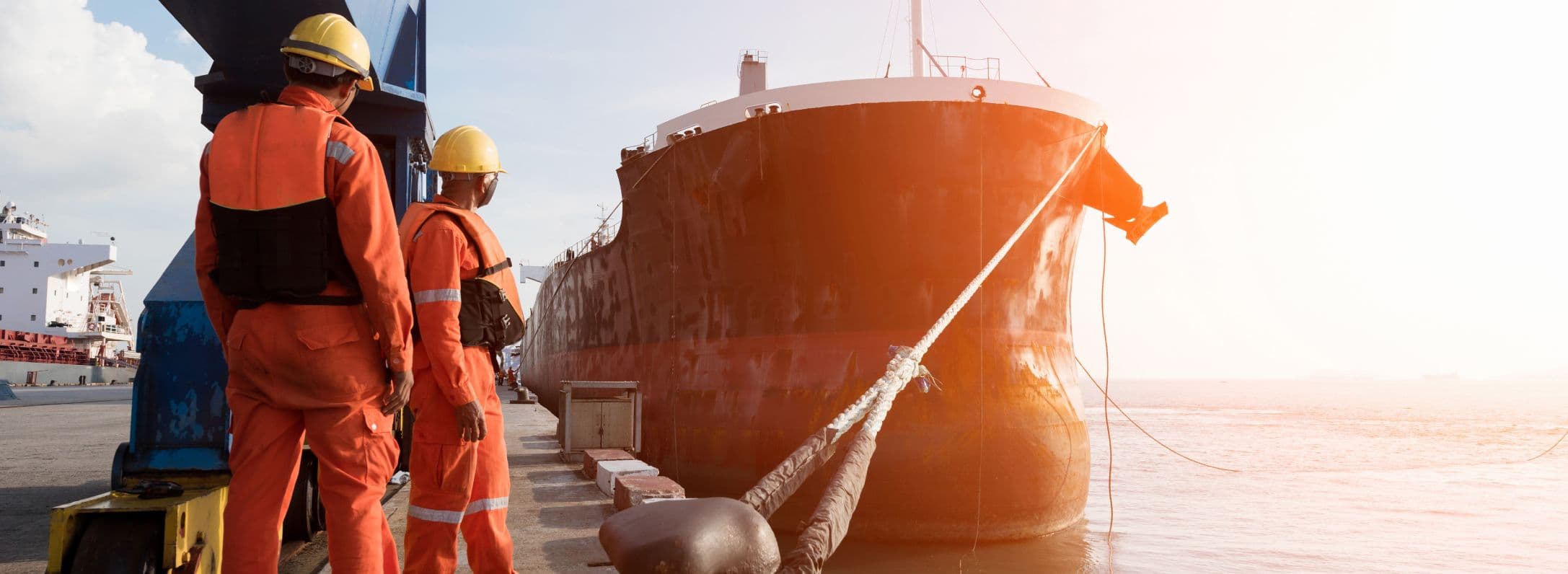
An In-Depth Guide to Offshore Vessels: Types, Careers, and More
Offshore vessels are the workhorses of the maritime industry, responsible for a wide range of tasks including oil and gas exploration, support for offshore platforms, and oceanographic research. These specialized ships are engineered to withstand extreme maritime conditions and are vital for the functioning of several sectors within the marine world. This guide serves as a comprehensive resource to unpack the complexities of offshore vessels. We will cover the different types and classifications, highlight the most popular and technologically advanced vessels, and provide insights into career opportunities in this field. If you're involved in maritime activities or just graduated and contemplating a career in this sector, consider this guide an essential read.
Brief Overview of Offshore Vessels
What Are Offshore Vessels?
Offshore vessels are specialized marine ships designed for various tasks related to offshore oil and gas drilling, oceanic exploration, and support for offshore platforms. Unlike conventional cargo ships or fishing boats, offshore vessels are engineered with unique capabilities to meet the rigorous demands of offshore operations. They are built to withstand harsh marine environments, including extreme weather conditions, high waves, and deep waters.
When we talk about offshore vessels, it's important to note that the term is a collective one, encompassing a wide array of vessel types. Each of these has specific functionalities that contribute to offshore operations. This can range from transporting crews and supplies to drilling rigs, helping in the construction and installation of offshore equipment, or even serving as floating production platforms.
Understanding the specific roles and capacities of different types of offshore vessels is essential for anyone considering a maritime career, investing in the offshore sector, or simply aiming to expand their knowledge of maritime operations. In this guide, we'll delve into the various categories and types, giving you a comprehensive understanding of what each vessel is designed to do.
Types and Categories of Offshore Vessels
The offshore industry relies on a variety of specialized vessels for tasks ranging from exploration to construction. Some of the most famous ones are:
- Oil Exploration and Drilling Vessels
- Offshore Support Vessels
- Offshore Production Vessels
- Construction/Special Purpose Vessels
Understanding these categories is essential for anyone involved in maritime activities, from employers to aspiring seafarers.
Oil Exploration and Drilling Vessels
Oil Exploration and Drilling Vessels are purpose-built marine ships specifically engineered for the tasks of hydrocarbon exploration, drilling, and sometimes production. They are usually equipped with advanced technology, including drilling rigs and navigational systems, to function efficiently in open water conditions.
Functions of Oil Exploration and Drilling Vessels
The core functions of Oil Exploration and Drilling Vessels are manifold:
- Seismic Surveying: These vessels carry out seismic studies to locate possible oil and gas reserves beneath the ocean floor.
- Drilling: Equipped with drilling rigs, these ships drill wells to access hydrocarbon reserves.
- Well Testing and Intervention: Post-drilling, these vessels often handle well testing to ascertain the reserve’s viability and perform interventions to enhance or restore productivity.
- Production Support: While not their primary role, some of these vessels can also offer support for actual hydrocarbon production, acting as Floating Production Storage and Offloading (FPSO) units.
Types of Oil Exploration and Drilling Vessels
The types of Oil Exploration and Drilling Vessels can be broadly classified into:
- Drillships: Highly maneuverable and suited for deep waters, drillships are equipped with drilling rigs and can relocate without the need for towing.
- Semi-submersibles: These are partially submerged vessels that offer a stable drilling platform, especially useful in rough seas.
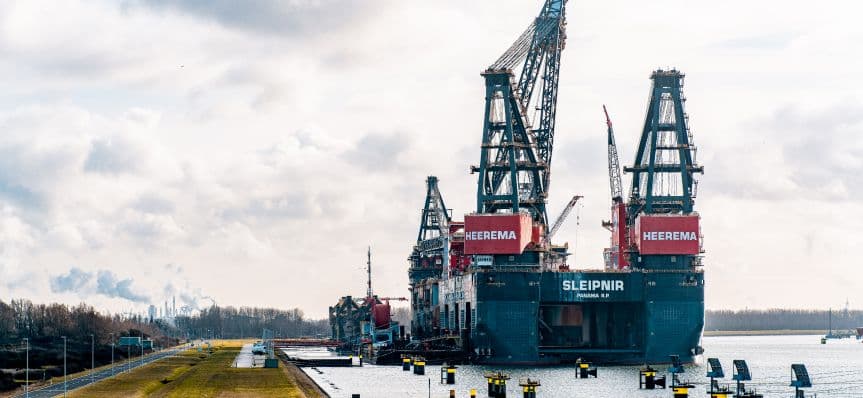
- Jack-up Rigs: These are mobile drilling platforms with legs that can be lowered to the seabed to provide stability during drilling operations. They are generally used in shallower waters.
Offshore Support Vessels
Offshore Support Vessels (OSVs) are an integral category of marine vessels, specifically designed to assist in the operations of offshore drilling rigs, oil platforms, and other types of maritime facilities. Unlike Oil Exploration and Drilling Vessels, OSVs are not engaged in the drilling or production process but rather provide essential support services.
Functions of Offshore Support Vessels
The functions of Offshore Support Vessels are varied but indispensable:
- Supply Duties: OSVs are heavily utilized for carrying food, fresh water, fuel, and equipment to offshore platforms and drilling sites.
- Personnel Transportation: They are responsible for ferrying workers to and from offshore locations.
- Anchor Handling: Many OSVs have specialized equipment to manage the anchors for drilling rigs and production platforms.
- Emergency Response: Certain OSVs are equipped for firefighting, oil spill recovery, and rescue operations, ensuring safety at sea.
Types of Offshore Support Vessels
Offshore Support Vessels can be categorized into several types based on their specific roles:
- Platform Supply Vessels (PSV): Primarily used to transport goods and supplies to and from offshore platforms.
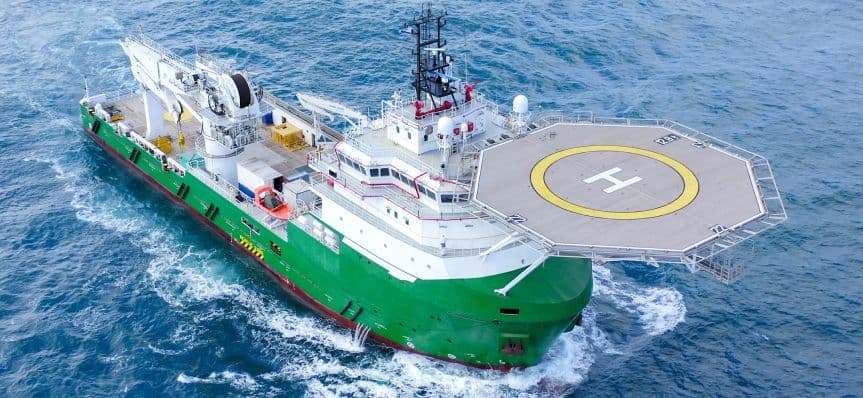
- Anchor Handling Tug Supply (AHTS): Specialized for towing drilling rigs and managing anchors.
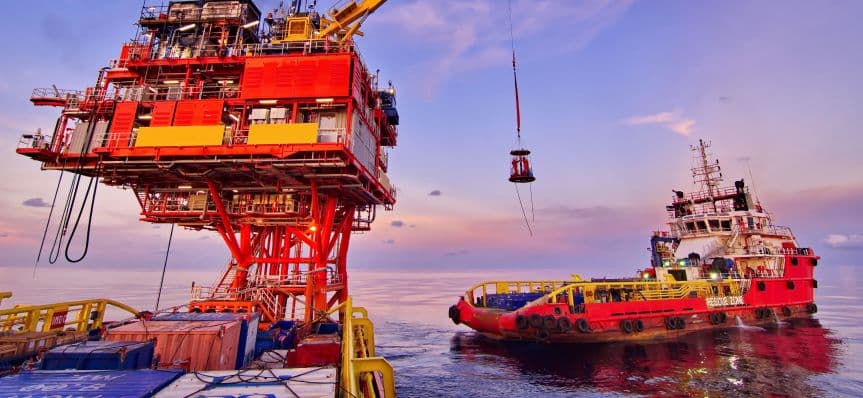
- Multi-Purpose Support Vessels (MPSV): Versatile vessels that can perform a range of duties, from supply and anchor handling to sub-sea construction and installation tasks.
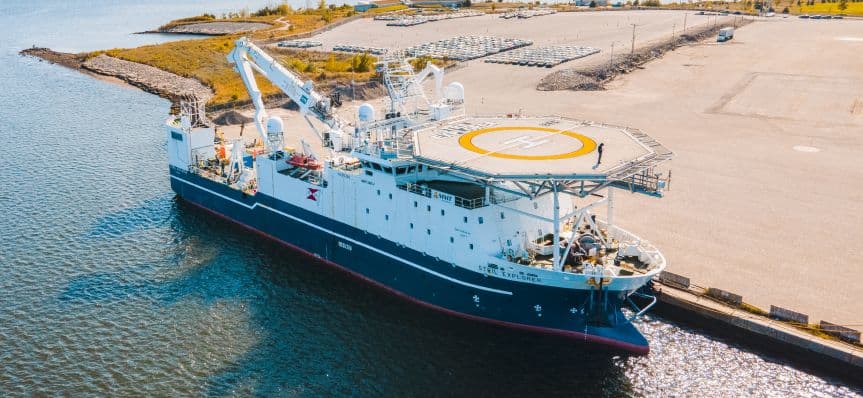
Offshore Production Vessels
Think of Offshore Production Vessels (OPVs) as floating factories engineered to do more than just assist. They are the heart of the offshore oil and gas industry, housing both production facilities and crew accommodations. These are the behemoths where the raw hydrocarbons are processed into usable forms.
The Role of Offshore Production Vessels
- Floating Production Systems: With built-in processing plants, OPVs function as mobile factories, ready to process hydrocarbons right where they're extracted.
- Storage and Offloading: Many OPVs have large storage tanks to keep processed oil before transferring it to tankers or pipelines. This is often denoted by the term 'FPSO,' which stands for Floating Production, Storage, and Offloading.
- Living Quarters: Not only are they production giants, but they also offer living accommodations for the crew.
- Versatility: Some OPVs are versatile enough to be converted into drilling platforms, especially if a promising reserve is found.
Types of Offshore Production Vessels
- Floating Production Systems (FPS): Stationary platforms anchored to the seabed, optimized for production, but not drilling.
- Tension-leg Platforms (TLP): Floating platforms tethered to the seabed in such a way that they offer both mobility and stability, suitable for deep waters.
- SPAR Platforms: These platforms use large cylinders filled with air and water to provide buoyancy, making them suitable for deeper waters and more volatile sea conditions.
- Floating Liquefied Natural Gas (FLNG): Specialized vessels designed to produce and process liquefied natural gas on the spot, then store it until it can be offloaded onto a tanker.
Construction/Special Purpose Vessels
Construction/Special Purpose Vessels may not get the limelight, but these specialized ships are the backbone of any large-scale offshore project. From laying undersea pipelines to constructing offshore wind farms, these vessels do it all.
The Role of Construction/Special Purpose Vessels
- Pipeline and Cable Laying: Imagine laying down the internet connectivity or oil pipelines for an entire ocean. These ships do exactly that.
- Heavy Lifting and Installation: From installing offshore drilling rigs to setting up wind turbines, if it's heavy and needs to be in the middle of the ocean, these ships get the call.
- Dive Support and ROV Operations: These ships provide the crucial support needed for human divers and remotely operated vehicles to perform underwater construction and maintenance tasks.
- Survey and Seismic Operations: Specialized in assessing the seabed and underwater structures, these vessels play a pivotal role in planning any offshore project.
Types of Construction/Special Purpose Vessels
- Crane Vessels: These are the true heavy lifters, equipped with massive cranes for construction duties.
- Pipe-Laying Vessels: Specially designed to lay undersea pipelines, these vessels have unique onboard facilities to weld, inspect and lay pipes as they go.
- Well-Intervention Vessels: These ships are geared toward servicing existing wells to enhance or restore their productivity.
- Diving Support Vessels: These are equipped with saturation diving systems and dynamic positioning to support deep-sea diving operations.
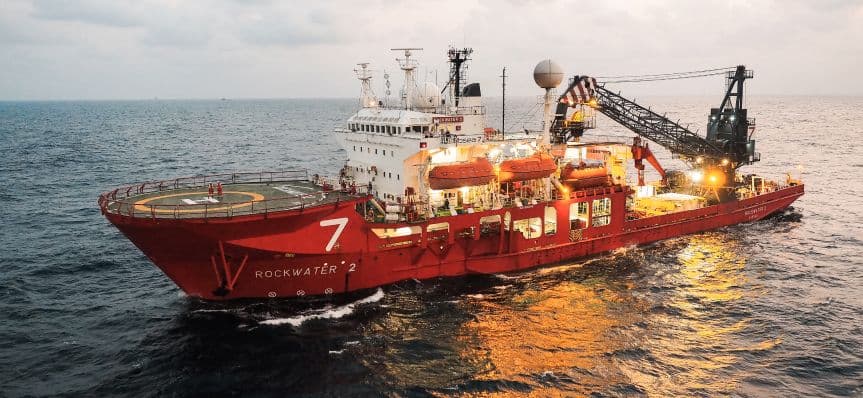
The Most Popular Offshore Vessels to Work On: Here’s Why Crews Love Them
In this section, we'll dig deep into what makes some offshore vessels particularly interesting to work on. From unique job roles to experiences that are out of the ordinary, these vessels offer more than just a paycheck.
What Makes The Most Popular Offshore Vessels "Popular"?
Before we dive into the list of top offshore vessels, let's look at what makes them popular:
- Advanced Technology: Some vessels boast cutting-edge technology, making them an exciting workspace for tech-savvy individuals.
- Unique Missions: Vessels with specific or unusual missions can offer a sense of adventure.
- Diverse Crew: Multi-cultural or specialized crew members can make for an enriching work experience.
- Challenging Environments: Vessels operating in extreme conditions require skill and offer excitement.
- Job Variety: A wide range of job roles can keep work interesting and engaging.
What Are the Most Unique and Popular Offshore Vessels?
Here we'll introduce some of the most popular offshore vessels in the industry:
Turbine Installation Vessel (TIV)
Unique Role: Working with renewable energy installations.
Why It’s Interesting: Get to contribute to sustainable energy solutions.
Research and Survey Vessel
Unique Role: Conducting scientific research.
Why It’s Interesting: The opportunity to be part of groundbreaking discoveries.
Icebreaker Ships
Unique Role: Navigating and managing the ship through icy waters.
Why It’s Interesting: Challenges of extreme weather add an element of thrill.
Diving Support Vessel
Unique Role: Underwater maintenance and repair.
Why It’s Interesting: Offers the opportunity for underwater exploration.
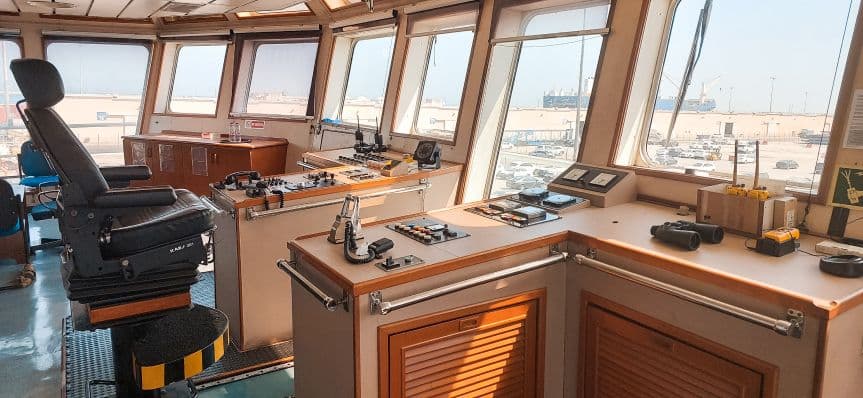
Navigating the Safety Landscape of Offshore Vessels: International Regulations, Onboard Measures, and Emergency Protocols
Sailing on the open sea is hard, but it's even harder for offshore vessels because they have special jobs. This part explains the safety rules for these ships, including international laws, safety steps on the ship, and what to do in emergencies.
Offshore-Specific International Regulations
Offshore vessels fall under unique regulatory frameworks given their specialized roles in activities like drilling, construction, and maintenance.
- MODU Code: The Mobile Offshore Drilling Units Code specifically focuses on the safety of vessels used for offshore drilling.
- ISPS Code: The International Ship and Port Facility Security Codeoffers guidelines for the security of offshore support and supply vessels.
- OSV Code: Some nations have Offshore Supply Vessel Codes to regulate support vessels in their waters.
Onboard Safety Measures Tailored for Offshore Vessels
Safety measures in offshore vessels are modified to account for the unique risks involved in offshore activities.
- Hazardous Material Handling: Given the risk of carrying potentially hazardous materials like drilling fluids or gases, specialized storage and handling measures are in place.
- Dynamic Positioning: Advanced systems that maintain a vessel's position without anchoring, are crucial for offshore construction or drilling.
- Subsea Safety Systems: Systems are in place for subsea operations, including divers or remotely operated underwater vehicles (ROVs).
Emergency Procedures Unique to Offshore Vessels
Emergencies at sea are challenging, but offshore vessels may also have to contend with issues like well blowouts, or man-overboard situations while operating heavy machinery.
- Well Control Protocols: Special procedures are in place for dealing with issues like well blowouts during drilling.
- Heavy Lift Evacuations: Offshore construction vessels often have procedures for emergency lifts.
- Remote Location First-Aid: Given that many offshore vessels operate far from coastlines, comprehensive medical facilities and telemedicine capabilities may be onboard.
To sum up, the safety protocols and regulations for offshore vessels are more intricate than general maritime rules, and tailored to the specific activities and risks these specialized vessels encounter. As a professional in the maritime industry, understanding these unique safety measures can make you not just compliant but competent in managing offshore challenges.
Career Opportunities in Offshore Vessels
Working at sea has many job options, but roles on offshore vessels are special and rewarding. This section talks about the jobs you can aim for, what you need to qualify, and the good and bad sides of working offshore.
What Are Different Types of Roles in Offshore Vessels?
Working on an offshore vessel isn't just for seafarers; it's a multidisciplinary environment that requires a range of skills.
- Maritime Crew: Deck cadets, bosuns, officers, engineers, and navigators are staple roles.
- Technical Specialists: Roles such as subsea engineers, ROV operators, and well control specialists are unique to offshore operations.
- Support Staff: These include medics, chefs, and administrative roles that keep the operation running smoothly.
Do you want to discover a variety of offshore and maritime jobs on different vessels? Check out our latest vacancies.
What Are Requirements and Qualifications for Working in Offshore Vessels?
A role on an offshore vessel often requires specialized training and credentials, beyond the standard maritime qualifications. Here are some common examples:
- STCW Certification: Standard Training, Certification, and Watchkeeping is the baseline for most maritime roles.
- Industry-Specific Courses: Many roles require courses like BOSIET (Basic Offshore Safety Induction and Emergency Training) or HUET (Helicopter Underwater Escape Training)
- Skill Certifications: For technical roles, certifications in relevant technologies or processes may be needed.
Pros and Cons of Working in an Offshore Vessel
Like any career, working on an offshore vessel has its highs and lows.
Pros:
- High Earning Potential: Salaries are generally higher to compensate for the challenging work environment.
- Specialized Skills: You'll acquire niche skills that are in high demand.
- Networking: Working on offshore projects often involves international teams, offering strong networking opportunities.
Cons:
- Extended Periods at Sea: Many offshore roles require weeks to months at sea.
- Physical and Mental Demands: The work is often strenuous, and the environment can be isolating.
- Regulatory Hurdles: Frequent updates in safety and operational regulations require constant learning and adaptation.
If you are interested in starting your career in the offshore industry and start working in vessels, you can start here.
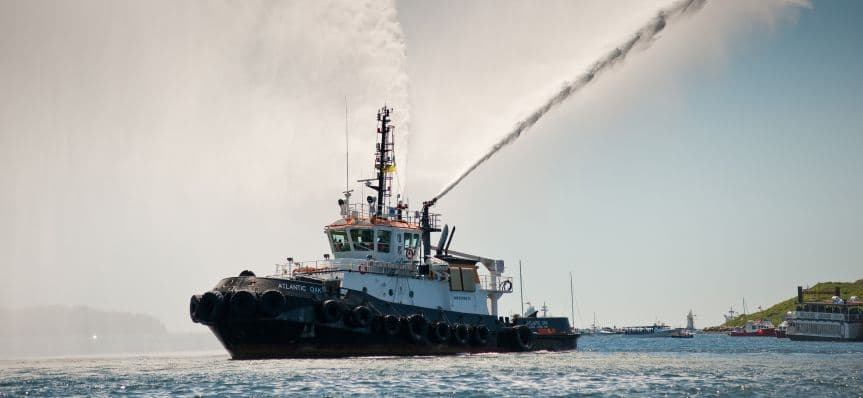
In summary, offshore vessels play a crucial role in various maritime activities, offering a range of specialized and rewarding career paths. Whether you're an industry veteran or someone considering a maritime career, understanding these vessels adds valuable context to your professional journey.